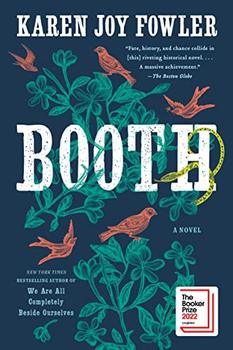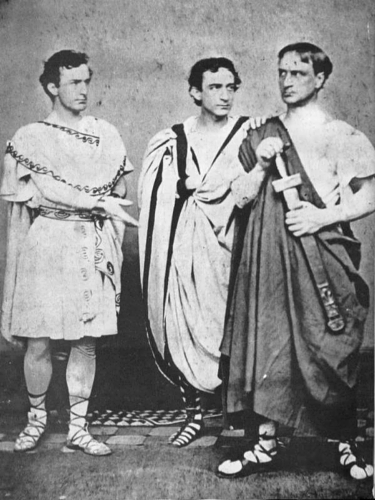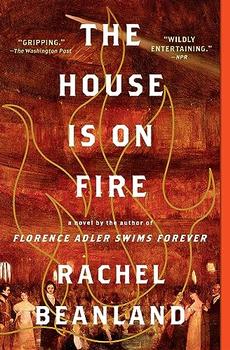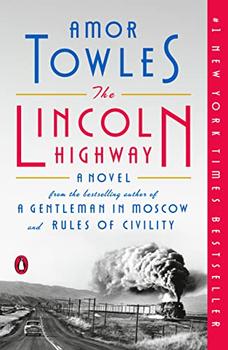Summary | Excerpt | Reading Guide | Reviews | Beyond the book | Read-Alikes | Genres & Themes | Author Bio

From the Man Booker finalist and bestselling author of We Are All Completely Beside Ourselves comes an epic and intimate novel about the family behind one of the most infamous figures in American history: John Wilkes Booth.
In 1822, a secret family moves into a secret cabin some thirty miles northeast of Baltimore, to farm, to hide, and to bear ten children over the course of the next sixteen years. Junius Booth—breadwinner, celebrated Shakespearean actor, and master of the house in more ways than one—is at once a mesmerizing talent and a man of terrifying instability. One by one the children arrive, as year by year, the country draws frighteningly closer to the boiling point of secession and civil war.
As the tenor of the world shifts, the Booths emerge from their hidden lives to cement their place as one of the country's leading theatrical families. But behind the curtains of the many stages they have graced, multiple scandals, family triumphs, and criminal disasters begin to take their toll, and the solemn siblings of John Wilkes Booth are left to reckon with the truth behind the destructively specious promise of an early prophecy.
Booth is a startling portrait of a country in the throes of change and a vivid exploration of the ties that make, and break, a family.
There are plenty of dramatic moments, but the extended timeline means there is also some skating over of long periods. Booth is low on scenes and dialogue, with Fowler conveying a lot of information through exposition. Luckily, the present-tense narration goes a long way toward making this less of a dull group biography and more of an unfolding story. I also appreciated that Rosalie and the other Booth sister, Asia, are given major roles as point-of-view characters. Truth is stranger than fiction, the old saying goes. That's the case with the Booth family for sure...continued
Full Review
(772 words)
This review is available to non-members for a limited time. For full access,
become a member today.
(Reviewed by Rebecca Foster).
 Karen Joy Fowler's Booth features several characters who are Shakespearean actors, starting with Junius Brutus Booth, who was born in England in 1796 and emigrated to the United States in 1821. He managed the Adelphi Theatre in Baltimore in the 1830s and also toured internationally, becoming very well-known in the U.S. and abroad. All told, he featured in almost 3,000 stage performances. His son Edwin would go on to be lauded as one of the greatest American actors of the 19th century, especially noted for his role as Hamlet. Older son Junius Booth Jr. was an actor in his own right, as well as a theater director.
Karen Joy Fowler's Booth features several characters who are Shakespearean actors, starting with Junius Brutus Booth, who was born in England in 1796 and emigrated to the United States in 1821. He managed the Adelphi Theatre in Baltimore in the 1830s and also toured internationally, becoming very well-known in the U.S. and abroad. All told, he featured in almost 3,000 stage performances. His son Edwin would go on to be lauded as one of the greatest American actors of the 19th century, especially noted for his role as Hamlet. Older son Junius Booth Jr. was an actor in his own right, as well as a theater director.
The first known U.S. performance of Shakespeare was in 1730: an amateur production of Romeo and Juliet in New York City. ...
This "beyond the book" feature is available to non-members for a limited time. Join today for full access.

If you liked Booth, try these:

by Rachel Beanland
Published 2024
The author of Florence Adler Swims Forever returns with a masterful work of historical fiction about an incendiary tragedy that shocked a young nation and tore apart a community in a single night—told from the perspectives of four people whose actions during the inferno changed the course of history.

by Amor Towles
Published 2023
Winner of the 2021 BookBrowse Fiction Award
The bestselling author of A Gentleman in Moscow and Rules of Civility and master of absorbing, sophisticated fiction returns with a stylish and propulsive novel set in 1950s America.
To make a library it takes two volumes and a fire. Two volumes and a fire, and interest. The interest alone will ...
Click Here to find out who said this, as well as discovering other famous literary quotes!